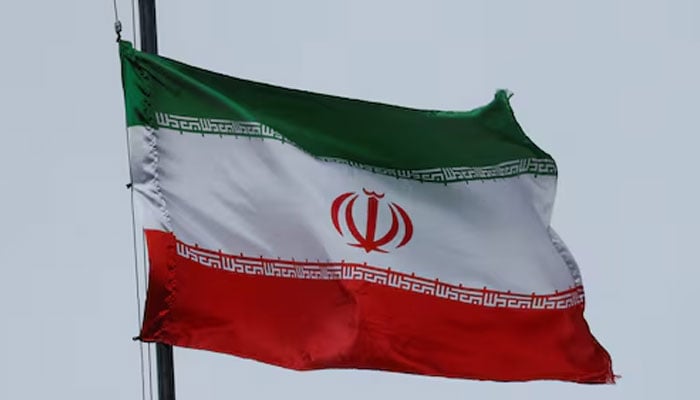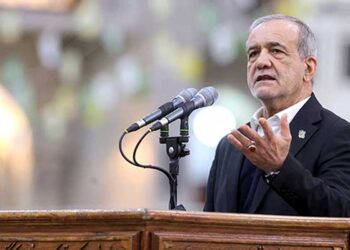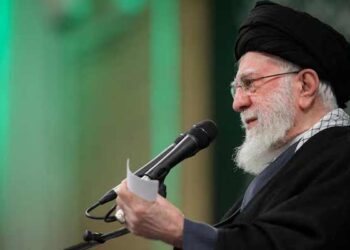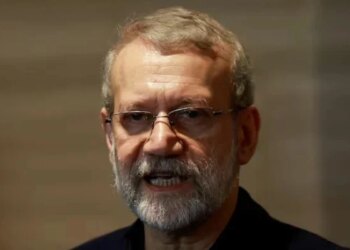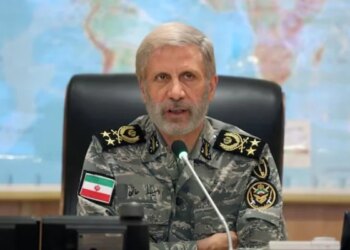Select Language:
On Sunday, Iran condemned the reimposition of United Nations sanctions over its nuclear program as “unjustifiable,” following failed talks with Western powers and Israeli and US strikes on its nuclear installations. The sanctions, which restrict dealings related to Iran’s nuclear and missile activities, were reinstated overnight after Western nations triggered the “snapback” mechanism under the 2015 nuclear deal.
The Iranian foreign ministry issued a statement deeming the reactivation of previously annulled resolutions as “legally unfounded and unjustifiable,” emphasizing that all countries should avoid recognizing this “illegal situation.” They affirmed Iran’s commitment to defending its national rights and interests, warning that any actions undermining its sovereignty would be met with a strong response.
This move marks the conclusion of several months of tense diplomacy aimed at renewing nuclear negotiations, which have been stalled since June after Israeli and US attacks on Iranian nuclear sites. Despite the sanctions’ reimposition, Western officials underscored that dialogue channels remain open.
European Union’s top diplomat, Kaja Kallas, stated that the sanctions should not be viewed as the end of diplomatic efforts. US Secretary of State Marco Rubio called on Iran to accept “direct, good-faith negotiations” and urged UN member states to implement sanctions swiftly to pressure Iran’s government for better outcomes for their nation and global safety.
Foreign ministers from Britain, France, and Germany expressed a shared desire to pursue a diplomatic solution to prevent Iran from developing nuclear weapons. However, Iranian President Masoud Pezeshkian dismissed the possibility of negotiations that would introduce “new problems,” asserting Iran’s readiness to face any situation by standing firm, relying on the strength of its people, and moving forward with dignity.
Although Iran had allowed UN inspectors access to its nuclear sites, Pezeshkian criticized a US proposal requiring Iran to give up its entire stockpile of enriched uranium—calling it unacceptable. An effort by Russia and China to delay sanctions until April failed in the Security Council, leading to their implementation early Sunday morning Tehran time. Germany, officially triggering the sanctions alongside Britain and France, stated it had “no choice” because Iran was not fulfilling its commitments, underscoring the importance of preventing Iran from acquiring nuclear weapons while maintaining openness to negotiations.
Reactions within Iran’s media landscape varied: conservative outlets like Kayhan argued sanctions would have been imposed regardless of negotiations, while reformist papers like Ham Mihan questioned whether Russia and China would maintain their support. Russian Foreign Minister Sergei Lavrov reaffirmed Moscow’s stance that it would not enforce the sanctions.
The measures are the “snapback” of sanctions frozen since 2015, when Iran agreed to limits on its nuclear program under a deal negotiated by former President Barack Obama. The US had already imposed extensive sanctions after President Trump withdrew in his first term. This year, Iran and the US engaged in several rounds of talks brokered by Oman, but these collapsed following Israeli and US strikes.
On the economic front, Iranians expressed concern that the sanctions would deepen economic hardships. An engineer, requesting anonymity, remarked that the country’s already difficult economic situation would worsen, citing rising exchange rates and higher prices. The Iranian rial hit a record low, trading at approximately 1.12 million to the US dollar on the black market, according to currency tracking sources.

